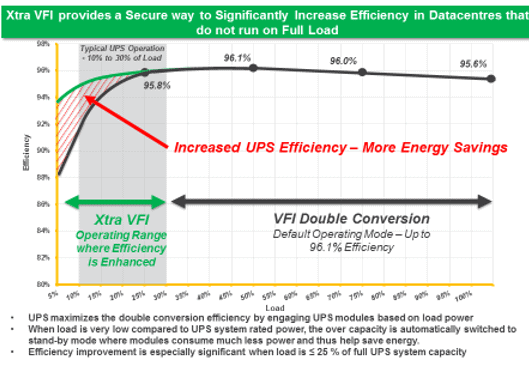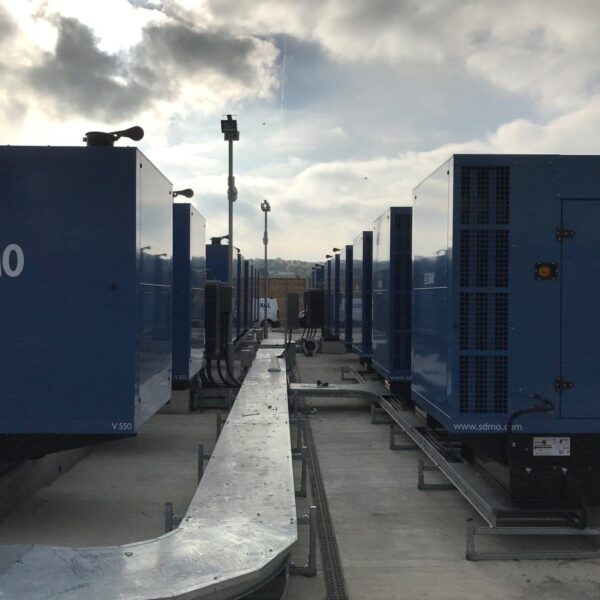The advent of transformerless technology not only improved double-conversion UPS energy efficiency; it also maintained this high efficiency over a much wider load range. Nevertheless, if the load drops to about 25% or below, then efficiency levels start to fall away significantly. Xtra VFI is a smart way to minimise the resulting losses and improve UPS efficiency when operating considerably under capacity.
Xtra VFI is based on a concept that has always been inherent in modular UPS topology. Suppose, for example, that a significant number of a data centre’s servers are decommissioned for an extended period, or even permanently. A modular UPS supporting the data centre could easily be kept adequately loaded with the remaining servers by switching off or removing modules that have become excess to requirement. They can just as easily be restored later, if necessary. Easy adaptation to required load capacity is a natural benefit of modularity, sometimes referred to as ‘rightsizing’.
Xtra VFI mode, which is available on UPS power system’s KOHLER PW DPA9500 and KOHLER PW 9250DPA, automates this process by detecting the current load level and adjusting the number of active modules accordingly; no operator intervention is required. In performing the optimal efficiency calculation, the system allows for any desired redundancy level. Redundancy levels for active capacity and the highest expected load steps can be user-configured to guarantee the highest protection level.
Excess modules are switched to standby but remain ready to start up, become active and share the load again if it increases. If a mains failure or alarm event occurs, the Xtra VFI mode is deactivated, and all modules are switched to ‘active’ status.
The efficiency improvements achieved by this mode of operation are especially significant when the load is less than 25 percent of the full UPS system capacity.
A typical implementation could comprise a maximum load of 800kW, with a required redundancy level of N+2. This could be entirely supported by a pair of 500kW UPS frames, each containing five 100kW modules. If the current load demand drops to 200kW, the number of active modules will be reduced to four to provide 400kW active capacity. The 200kW load is being supported with N+2 redundancy, as required. All modules share the load equally, so each is 50% loaded and operating efficiently. The UPS standby capacity becomes 600kW; some or all of this is available to bring back online immediately if the load increases again.
Even in the most carefully managed data centre environments, loads can vary unexpectedly for operational or business reasons. The Xtra VFI mode ensures that UPSs can accommodate these changes without loss of efficiency.





